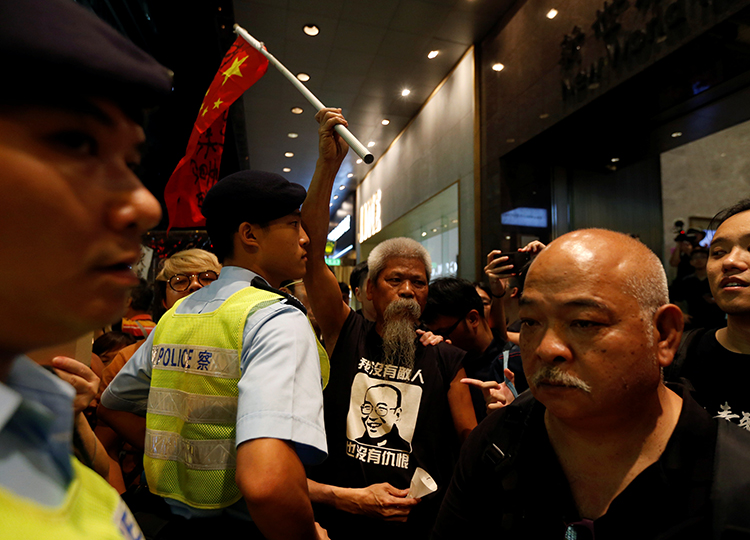Washington, D.C., August 4, 2017–A Chinese court’s sentencing of journalist Lu Yuyu to four years in prison is a further heavy blow to press freedom in the country, the Committee to Protect Journalists said today.
The Dali People’s Court in Yunnan province yesterday sentenced the journalist, who meticulously documented protests in China on social media platforms under the moniker “Not News,” on charges of “picking quarrels and stirring up trouble,” according to news reports.
Police detained Lu and Li Dingyu, his romantic and professional partner who worked with him documenting protests, on June 16, 2016, according to media reports. One of Lu’s lawyers, Wang Zongyue, in September told activists that prison officials had beaten the journalist in jail and that Lu had gone on hunger strike. His trial began on June 23.
Li was released after an April trial on the same charge, although no verdict has been announced in that case, according to the website Chinese Human Rights Defenders.
“Lu Yuyu’s conviction on the vague charge of ‘picking quarrels and stirring up trouble’ starkly illustrates the fear that China’s leaders have of their own people,” CPJ Asia Program Coordinator Steven Butler said. “This travesty of justice should be reversed immediately and Lu Yuyu released without further delay.”
Lu is a former migrant worker from Guizhou Province who began reporting and documenting protests around China in October 2012, according to reports. Lu and Li documented protests against land expropriation, wage arrears, official corruption, and environmental pollution, verifying photos, videos, and textual accounts from social media, then republishing the information on a variety of social media platforms, including Twitter, Weibo, Blogspot, YouTube and Google Drive.
“Not News” collected a vast record of protests. In 2015 alone, Lu and Li documented more than 30,000 protests of various sorts, according to the Chinese-language website Bannedbook.org. The Chinese government stopped publishing statics of these kinds of protests after 2007, when more than 100,000 incidents were recorded for that year alone, according to the site.
Lu’s lawyer, Xiao Yungyang, called Lu’s sentence “unreasonable,” in an interview with Radio Free Asia, the U.S.-funded broadcaster, and said the conviction had already been appealed.
